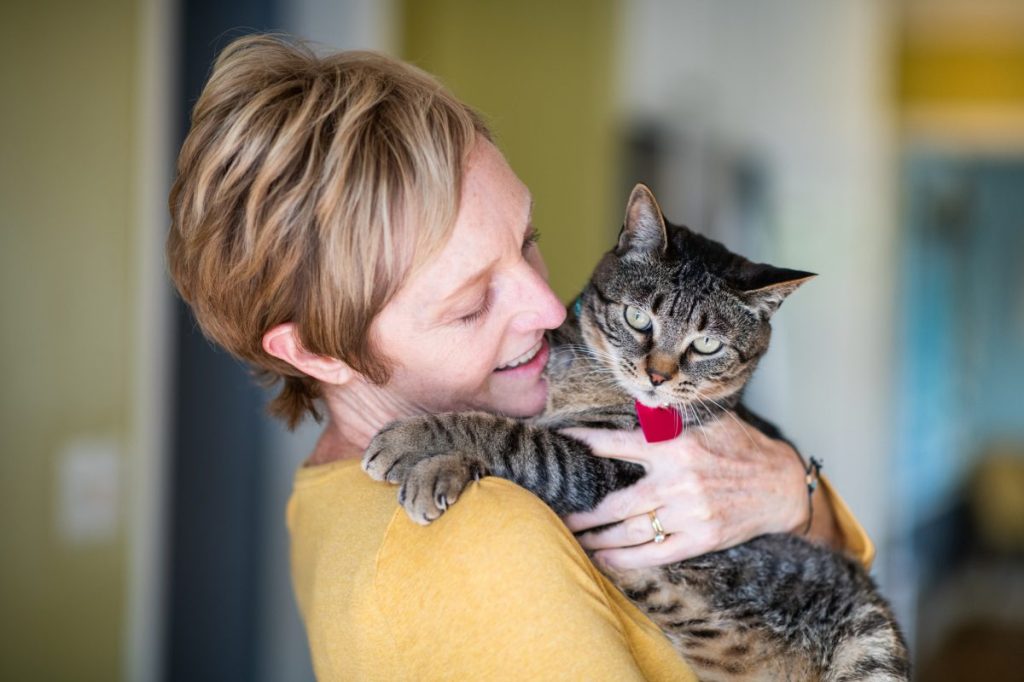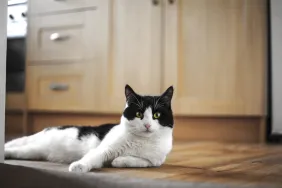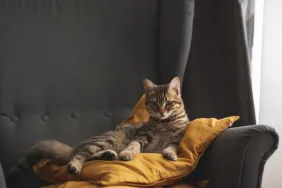A rescue cat with a seizure disorder is finally settling into her forever home after a two-year wait. According to People, her new cat parent has epilepsy.
Special needs cat surrendered to shelter
This heartwarming story starts in June 2021. That’s when a healthcare worker surrendered a black cat named Annie to the Dutchess County SPCA (DCSPCA) in New York. Annie’s parent was suffering from dementia and could no longer care for her. The shelter soon discovered that Annie had health issues.
“Because she was undiagnosed when she arrived, it took some time for us to learn what the problem was and how to treat it,” Lynne Meloccaro, DCSPCA’s executive director, told People.
Because of the previous cat parent’s illness, Annie didn’t receive the care she needed. “We rolled up our sleeves and got to work to figure out the best treatment plan for her,” Meloccaro said.
The shelter placed Annie in a foster home. There, she had a “quiet and stable” environment in which to recover. During the eight months Annie lived in the foster home, her diagnosis became clear: feline hyperesthesia. It’s a rare seizure disorder.
“If untreated, her condition will manifest as fits of severe anxiety and self-mutilation. She will be fine one moment, and then the next, suddenly turn around and bite her own tail. Her tail was quite chewed up when she first arrived,” Meloccaro recalled.
When the seizures occur, Annie doesn’t want to be touched. There’s no way to her comfort her. “And that’s heartbreaking because she is clearly terrified when these fits occur,” Meloccaro said.
Annie’s condition improved with anti-seizure medication. Her tail healed, too. But she will need the medication for the rest of her life.
Cat with seizure disorder finds forever home
Unfortunately, Annie’s health challenges were a deterrent to potential adopters.
“The average adopter might ask, ‘Why should they consider a cat like Annie when there are so many other cats available without any issues?’” Meloccaro said. “That’s why many shelters would not even let a cat like Annie stay for as long as she did, but we always try to do all we can to find that special adopter who is willing to give a home to a special needs cat, even if it takes two years.”
And it did take two years – two years and two months, to be exact. Then Annie met Renee, who has epilepsy due to Sturge-Weber Syndrome (a rare vascular disorder). Renee parented special needs cats in the past. Annie’s feline hyperesthesia didn’t intimidate Renee.
“To hear that a kitty had to endure two years without a permanent home was awful, and I was bound and determined to remedy that,” Renee said. “As someone with a rare condition myself — Sturge-Weber Syndrome — I know the unknown can be scary, but I was ready to face it with her!”
“From Annie’s point of view, Renee must seem like they dropped from heaven to be Annie’s human,” Meloccaro said.
Renee brought Annie home and renamed her Tapenade. The cat is adjusting well. She has feline siblings and a cozy spot by a window.
“She’s a bit timid on the surface, but once she gets comfortable with her environment, she’s incredibly curious and playful,” Renee told People. “Not only that, but she loves love and has been more than happy to simply cuddle!”
Renee hopes that Annie’s adoption story will inspire others.
“I hope that people are able to look at our story and realize that they shouldn’t be afraid to take home an older or special needs pet!” Renee said. “It may seem like a lot on paper, and that may intimidate new pet owners; just know that it’s worth it.”









